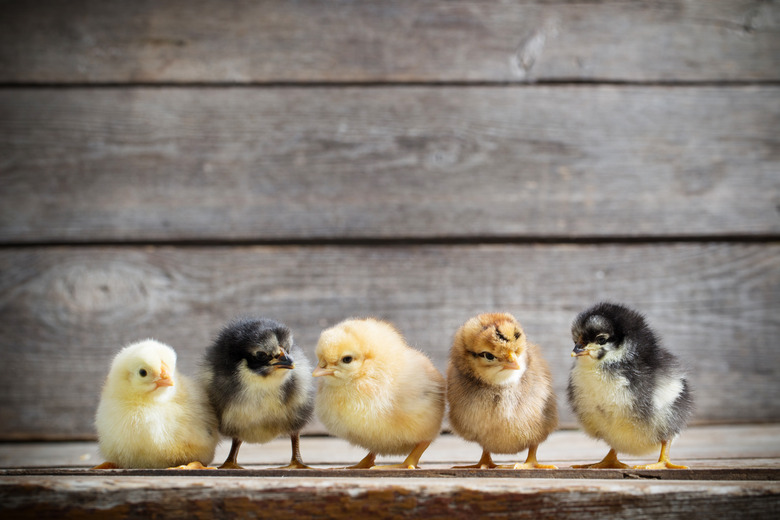Aspiration Symptoms In Baby Birds
Taking care of a baby bird takes a lot of skill and time, although the rewards are great. Birds make wonderful pets, and raising one from a young age is a bonding experience, especially for the human. One of the dangers of hand feeding a baby bird is the possibility of causing the bird to aspirate and perhaps die.
Definition
Definition
When food or liquid gets into the trachea, the bird inhales it into its lungs. This is called aspiration. If it aspirates too much, it will die very quickly from suffocation. When just a little food or liquid is aspirated, the bird can develop what is called aspiration pneumonia.
Ways aspiration occurs
Ways aspiration occurs
Baby birds usually aspirate because of incorrect feeding methods. Bird mouths are very different from those of humans. Their trachea is located under their tongue, rather than in the back of the throat like in humans. It looks like a small tubular opening. When a bird is eating, the trachea is normally closed off by a structure called the glottis. Hand feeding a chick can lead to mistakes.
If a baby is fed liquid or a very thin solid, the liquid or food can easily make its way into the trachea. You have to be careful to feed the bird a thicker food mixture, and it has to be aimed down the throat.
Additionally, the bird has to want to eat, indicated by bobbing its head. Forcing it to eat can cause it to get into the trachea.
If a bird is fed too much while its crop is still full, some of that food can make its way back up into the mouth where it might get aspirated.
Symptoms
Symptoms
When a baby bird inhales food or liquid, it will sputter, shaking its head while desperately trying to get some air. It's similar to how you react when liquid goes down the wrong pipe. Sometimes the food or liquid will spurt out of its nostrils while it sneezes or "coughs."
Treatment
Treatment
The severity of aspiration pneumonia requires veterinary care. You will have to administer a course of antibiotics or antifungals.
Complications
Complications
It may seem like your bird is okay after an aspiration incident, but aspiration pneumonia could be settling in. Unfortunately, there are very few symptoms of this until it's too late. Your bird may begin to lose weight, but that might be all you notice. If you realize your bird has aspirated, take it to the vet even if things seem okay.
Cite This Article
MLA
Rogers, Theda K.. "Aspiration Symptoms In Baby Birds" sciencing.com, https://www.sciencing.com/aspiration-symptoms-baby-birds-5422667/. 22 November 2019.
APA
Rogers, Theda K.. (2019, November 22). Aspiration Symptoms In Baby Birds. sciencing.com. Retrieved from https://www.sciencing.com/aspiration-symptoms-baby-birds-5422667/
Chicago
Rogers, Theda K.. Aspiration Symptoms In Baby Birds last modified March 24, 2022. https://www.sciencing.com/aspiration-symptoms-baby-birds-5422667/
